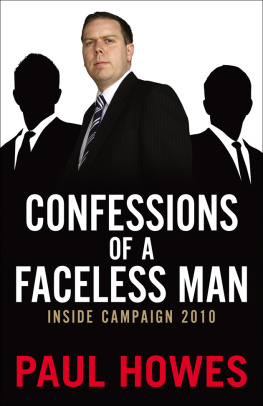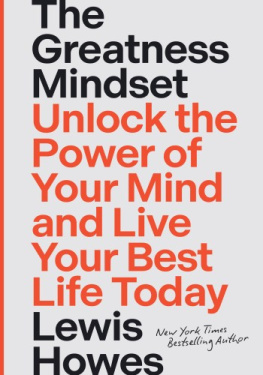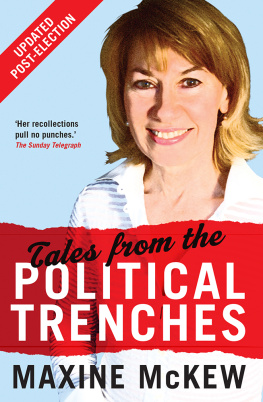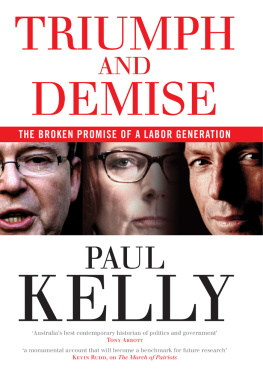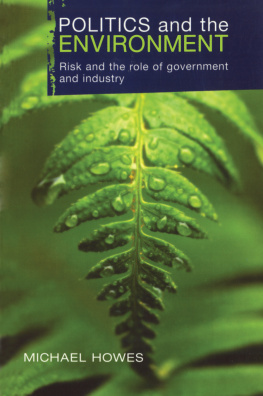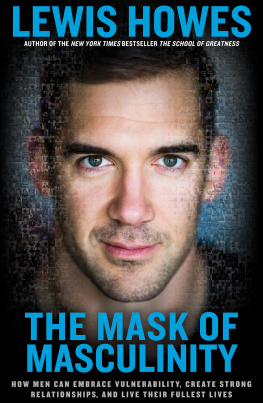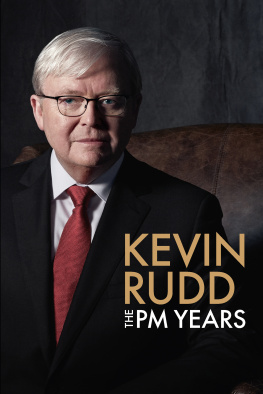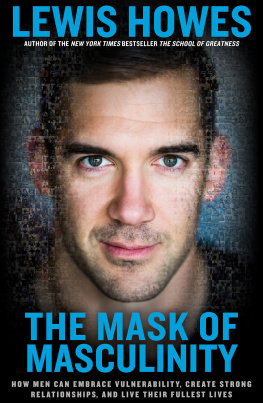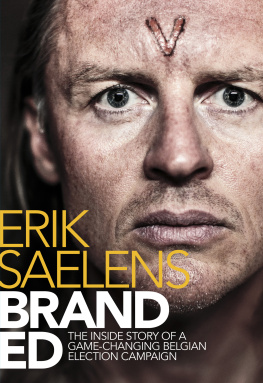Prologue
The storm before the storm
In the end, we won. Sort of.
Although Australia has had at least ten minority governments at the federal and state levels in the past twenty years, it was dispiriting, to say the least, to have one at the end of an interminable federal election. For seventeen days we waited while three (or four, or was it five?) independents made up their minds.
Eventually, Julia Gillards superior negotiating abilities won out. But at what cost? A hopelessly divided electorate, a lack of a clear mandate, with the question of government left to three men who would rather we hadnt done so, really.
I kind of know how they felt. In late June 2010, I had found myself in the invidious position of having to give my opinion on who should be the prime minister of Australia.
It was a cold midwinters night, and I was home early from work. As national secretary of the Australian Workers Union, Australias oldest trade union, I am rarely home early, but my wife Lucy had given birth to our third child only two weeks earlier. The phone rang and on the other end was a senior member of the federal ministry, telling me the challenge to Kevin Rudds prime ministership was on, and could I please make my mind the fuck up about whether wed support it and let him know in half an hour. It was not a fait accompli that the AWU would support a challenge. Support the leader had long been our mantrahistorically weve always been opposed to leadership challenges. In fact, on the Sunday before the challenge, I had spent most of the day on the phone telling a number of my friends in the Caucus that I didnt think a challenge at Tuesdays meeting would be the best course of action. And as I spoke to colleagues to weigh up our options on that fateful Wednesday night, Lucy scrawled on a piece of paper, Bad idea. Wont fly.
But the die had been cast. The federal parliamentary Labor Caucus was sick to the back teeth of Rudd and wanted him gone. And the key plotters, or so they have been calledthe faceless men, whom I was about to joinwanted me to come on board; they wanted an outside voice, a leader of the labour movement, backing their decision to give the process an air of legitimacy. In this, as it turned out, I wholly failed. All I did was commit the cardinal sin of backroom politicsI made myself part of the story.
I still have the piece of paper that Lucy scrawled on, and as I write this, several weeks after the 2010 federal election, I know that she was mostly rightand possibly, completely right. As we discovered, the Australian public found it very difficult to accept the dumping of Kevin Rudd. But despite all the criticism that I and my fellow faceless men have copped, it seems to me that we did the right thing. And not just because we believe that Prime Minister Julia Gillard can successfully lead our newly formed minority government, and turn it into a long-term, stable administration.
But because the Rudd Government had become, or maybe had always been, completely dysfunctional. The evidence had been there, but the media had failed to see it, which is why they were so completely taken by surprise by the leadership change, so utterly pissed off by the lack of prior warning. The endless staff departures, the hastily covered-up tantrums over hair dryers and hot meals, the gaggle of inexperienced advisers, the bizarre publicity stunts with celebrities, the angry circumventing of Cabinetit all added up to a government whose members had no power, no say.
Except, of course, they did. They had the ultimate power, and the Caucus decided to wield it.
Kevin Rudd in many ways is an impressive man, but he had no talent for leading a political party once in government. He appeared to have a complete lack of understanding of our parliamentary system. It seemed to me he had convinced himself that he was, in fact, the president of Australia, governing with the support of the Labor Party in parliament. As an outsider, a loner with no real friends in the Caucus, he had made the ultimate mistakehe had forgotten to do the numbers. And so the numbers did him. As in football, when your captain is no longer playing well, you put someone else in.
My role in the leadership coup has been overstated in the media. Had I not gone on ABCs Lateline program on the night of the challenge and publicly backed Gillard, she still would have won. However, by that stage of the night the numbers were unclear, and no-one in the Caucus or in the wider labour movement could have predicted the huge support among the parliamentary members for a leadership change. Gillards key supporters thought that the AWUs backing might be the key to convincing a number of backbenchers to make the switch.
The AWU has always taken a stance on the question of leadership of the federal party. This was different only in that it was the first time since wed backed Bob Hawke to succeed Bill Hayden that we hadnt supported the incumbent leader. But ultimately, whether or not people listen to our opinion is up to them.
A quick glance through Australian political history or indeed global politics will reveal that unions taking positions on the leadership of progressive political parties is par for the course. In recent times, it has been clear that the support of the major unions in the UK delivered Ed Miliband the leadership of the UK Labour Party. And the support of large US unions gave Barack Obama the edge he needed during the 2008 primaries to snatch the presidential nomination, and eventually the presidency itself.
The Liberal Party, however, spun the line that this was something new, and many journalists, unwilling or too lazy to look at the 119-year history of the Australian Labor Party, swallowed ithook, line and sinker.
The union that I am proud to lead has been affiliated to the Labor Party for its entire existence. In fact, it was at an AWU meeting held under a tree in the central Queensland town of Barcaldine that the decision to form the Labor Party was taken. A nationwide strike of AWU members in the shearing industry had just been brutally crushed by the combined strength of the pastoralists and the colonial governments of the day, and it was decided that a new political party was needed to provide a voice for working people.
William Guthrie Spence, who five years earlier had formed the AWU with a young shearer named David Temple, had said, The working man must take his proper place in the nation. These words continue to guide the political direction of the AWU today. They hang above my desk in our national office in Sydney, and in each of our forty-five other offices.
There were also claims that the Labor leadership change was some form of power grab by me as an individual or the union as a whole, but nothing could be further from the truth. In his book Suddenly, Last Winter , Bob Ellis writes that on that night, I changed history, changed it incontestably. Would that I had such power. The truth is, I do not. The power was in the hands of the Caucus, and they wielded it, not seeking or needing any individuals imprimatur.
After the call from Canberra seeking the view of the union on the leadership of the party, I drove into my Sussex Street office to meet with Bill Ludwig, the AWU president and head of our Queensland branch. We discussed the pros and cons of a change with members of the federal parliamentary party, and after much agonising we decided that, yes, in our view, it was time. It wasnt an easy decision. We knew that we would come under much criticism. But the interests of our members had to come first.

